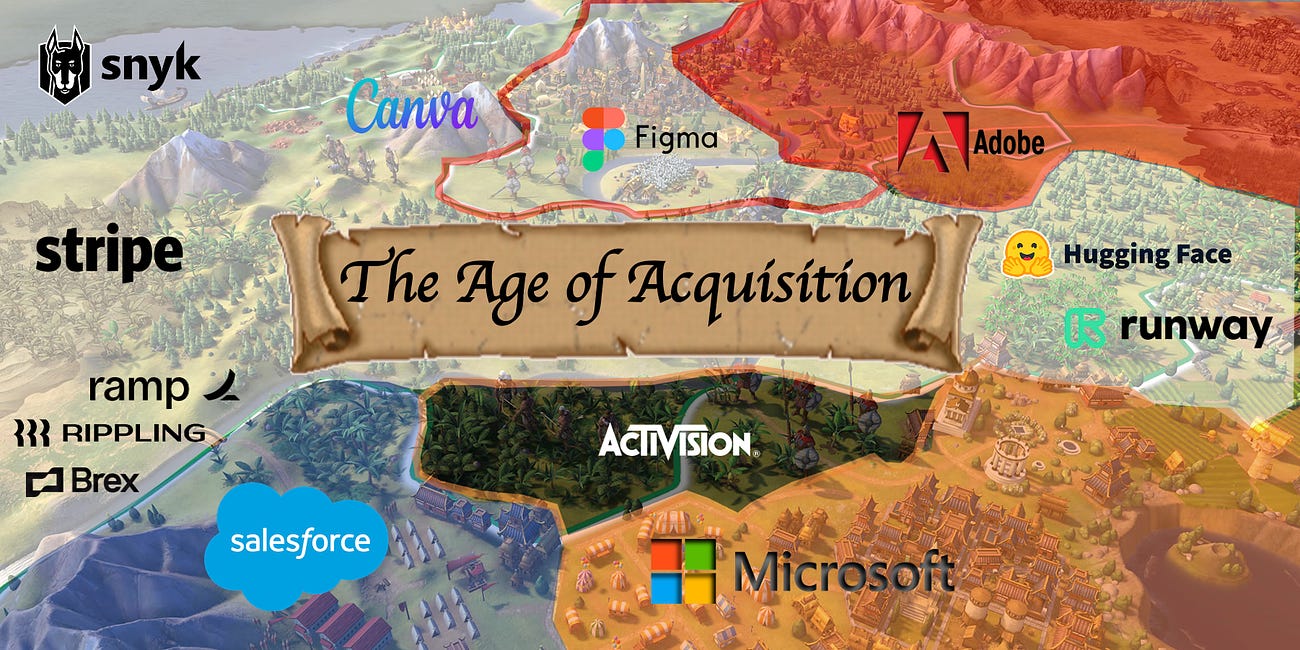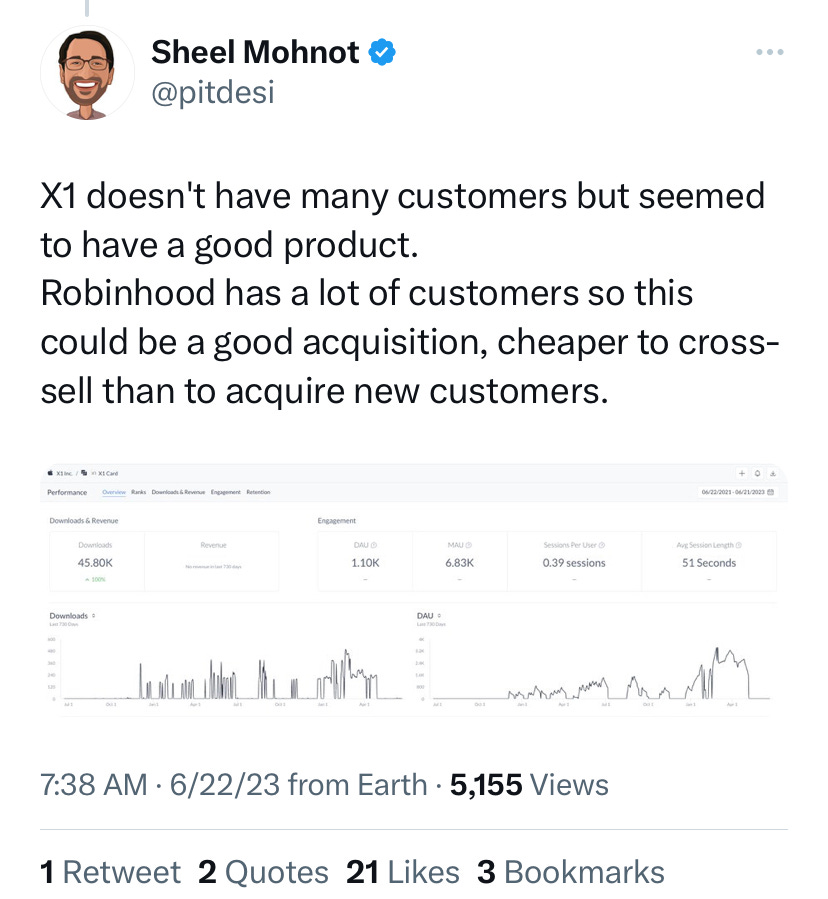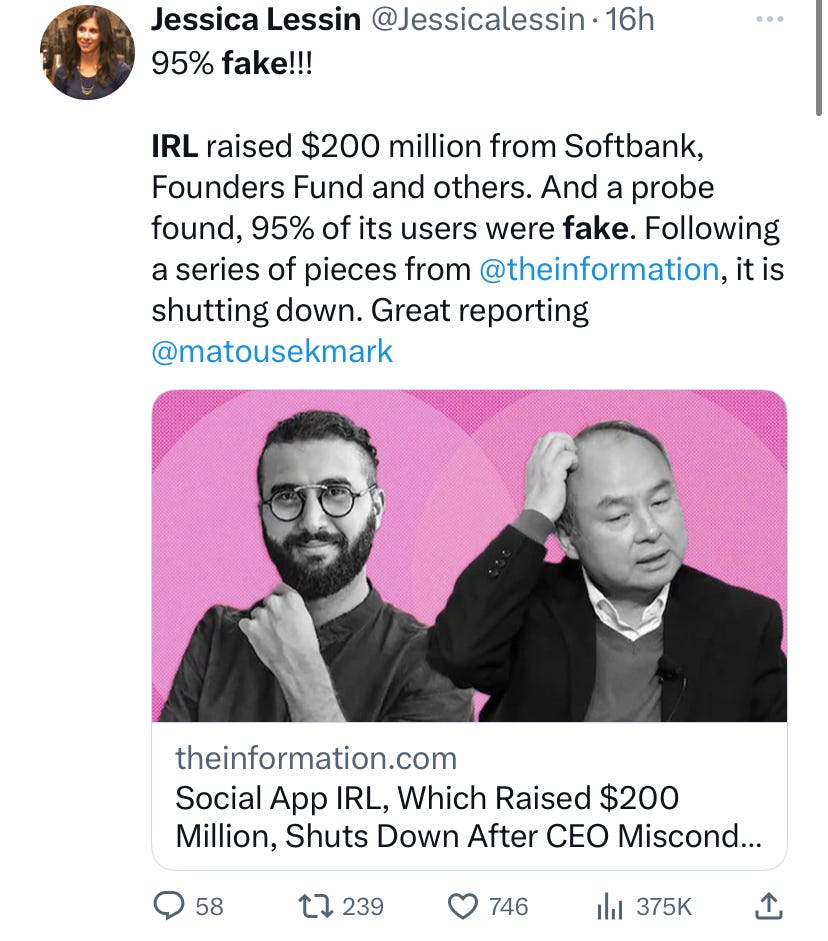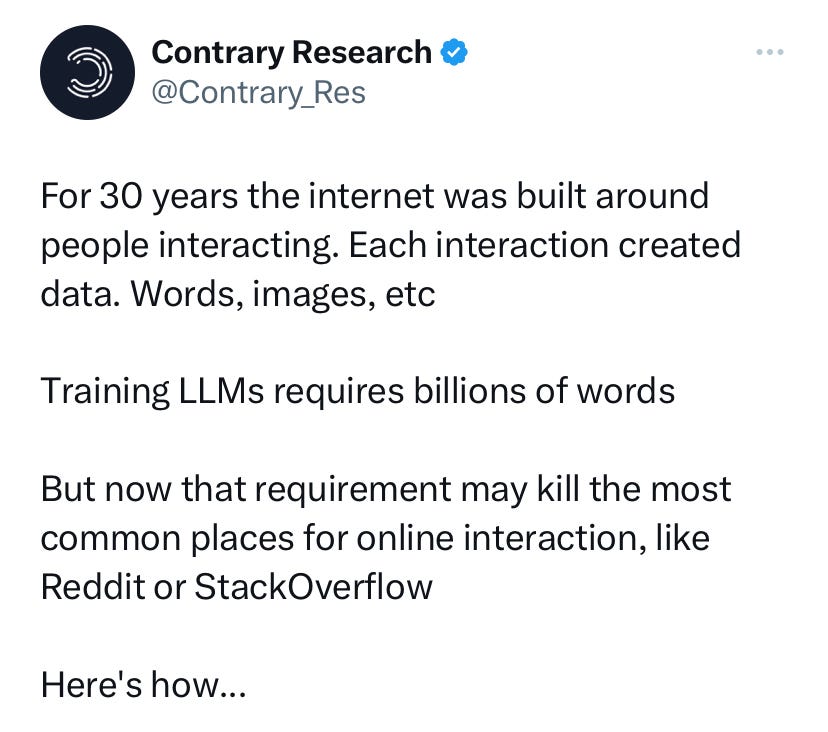This is a weekly newsletter about the art and science of building and investing in tech companies. To receive Investing 101 in your inbox each week, subscribe here:
Musical chairs is exactly the kind of game that feels very casual, but with the right people and enough competitive fervor, musical chairs can become a violent melee.
On a related note, BYU is a school where most people don’t drink. As a result, you have college kids that have to find their fun through methods other than becoming inebriated. Upping the ante while playing games like musical chairs is exactly the kind of fun BYU kids like to have.
We would play a combination of musical chairs and tag where, when the music stopped, one person was it. Everyone had to grab arms with one partner. Whoever was left without a partner was hunted by the person who was “it.”
I found myself as the prey, being pursued by the tagger. I was using two people as a shield and I attempted to juke the tagger, faking a left turn before bolting right. For as much as she anticipated my change in direction, she dramatically misjudged the force with which I would move.
We slammed face first into each other so hard, I still to this day believe some of her face bones are lodged in mine. There was blood, broken glasses, and more than a little head trauma.
You never know just how insane the playing field will get when the music stops.
And After The Music Stops?
Couple things. First? I’m writing this weeks post from my phone cause I’m in transit and can’t get to my laptop. As a result, I’ve learned just how terrible Substack’s interface is for writing on mobile. So, like emails from a 65-year old partner at a venture firm, “written from my mobile device; please excuse the typos.”
Second, this week has shaped up to be an eventful one for micro news. The kind of things that, if you’re not paying attention you might miss them. They’re not splashy per se, and they’re certainly not necessarily indications of success. So I’ve found myself reflecting on a collection of different ideas as opposed to one cohesive one.
Robinhood & X1
The first one that caught my attention was the acquisition of X1 by Robinhood.
One ZIRP was the ever-increasing supply of different types of cards, and X1 was one of them.
Couple of observations. First, it’s almost never a good outcome when you raise $62M and sell for $95M. I’ve written before about the value of controlling your own destiny.
Venture capital is one of those dependencies. If you pick up one end of the stick (raising venture) you automatically HAVE to pick up the other end of the stick (needing a large outcome for anyone to make money.)
I don’t know if X1 could have gotten where they got to without venture capital, but if they could have then what effectively becomes a failure could have been a life changing outcome for a few founders.
This is also an example of a Big + Small startup that I talked about when I wrote about the potential for acquisitions in a market correction.
The opportunity for larger company with distribution (Robinhood) to acquire a smaller company with a particular product (X1) makes it easier for both to have more success than they likely would on their own.
Other acquisitions like Brex’s purchases of Pry Financial offer similar product expansion for larger companies that possess existing distribution.
The Shutdown of IRL
In other news, a former buzzy unicorn shutdown this week. After raising $200M at a valuation of $1.2B, the company has shutdown after an investigation discovered that 95% of their users were fake.
Was all of consumer social a ZIRP? Outside of TikTok, everything from the metaverse to BeReal that promised to capture consumer attention has faltered.
On the one hand, this is a further indictment of the shortage of due diligence that has taken place over the last few years, something else I’ve written about before.
It also speaks to something I want to write a full post about, unpacking this idea of “playing different games.” That phrase came into my conceptual lexicon after reading a great piece from Everett Randle about Tiger’s strategy. The fact that the strategy was a ZIRP doesn’t make the piece any less insightful.
One aspect of the broader discussion I want to unpack is how Microsoft + OpenAI is not a game everyone can play. But consumer social represents another aspect of it.
When you look at companies like Facebook, Amazon, Google, etc. as the pillars of the consumer experience, they can feel like comps in measuring the potential for other consumer social startups. But even the players not far behind them (Snap, Pinterest, etc) have fallen far short of those outcomes (both of those are at ~$17B market caps.)
In my mind, consumer companies like Facebook and Google came of age at the same time as we all came online, and happened to have the perfect model to align with exponential growth. I don’t think those outcomes are super replicable.
The moment in time is certainly one aspect of the argument. But obviously the rise of YouTube and TikTok are counterarguments. I don’t really have a good answer for why these companies are so irreplaceable. But when I look at IRL, or companies like Frank (the fake consumer FinTech company JP Morgan bought), it’s obvious that it’s so much easier to fake users than to attract them. The CAC war continues.
The Reddit Rager
Reddit announced a round of layoffs and a reduced hiring plan. Just one in a long line of tech companies cutting back, right?
Well Reddit has actually had a much more complicated past few months. The company decided to start charging for access to its API and the roll out has been a nightmare. Turns out when you don’t make many changes to your product for decades, and then suddenly make a dramatic change, your PR muscle might be a little weak.
A big driver behind the decision is the encroachment of AI companies using Reddits data to train their language models. We unpacked some of the details in a thread for Contrary Research.
As the world gets more complex, figuring out how to manage a massive community, a changing macroeconomic climate, and increasing pressure to make money—it can feel nearly impossible.
Bringing It All Together
The music stopped when the market corrected. Whether it’s smaller, commoditized companies that can’t persist and need to get acquired, or it’s fake hyped-up consumer companies. Some of those outcomes hurt way more than my temporary face slam in the suped-up game of musical chairs.
Thanks for reading! Subscribe here to receive Investing 101 in your inbox each week:













